China Brands, Marketing & Consumers
China’s Bubble Tea Boom: Top 10 of Popular Milk Tea Shops in the PRC
China’s bubble tea (aka pearl milk tea) market is booming: these are the top 10 popular milk tea shops in the PRC.
Published
6 years agoon
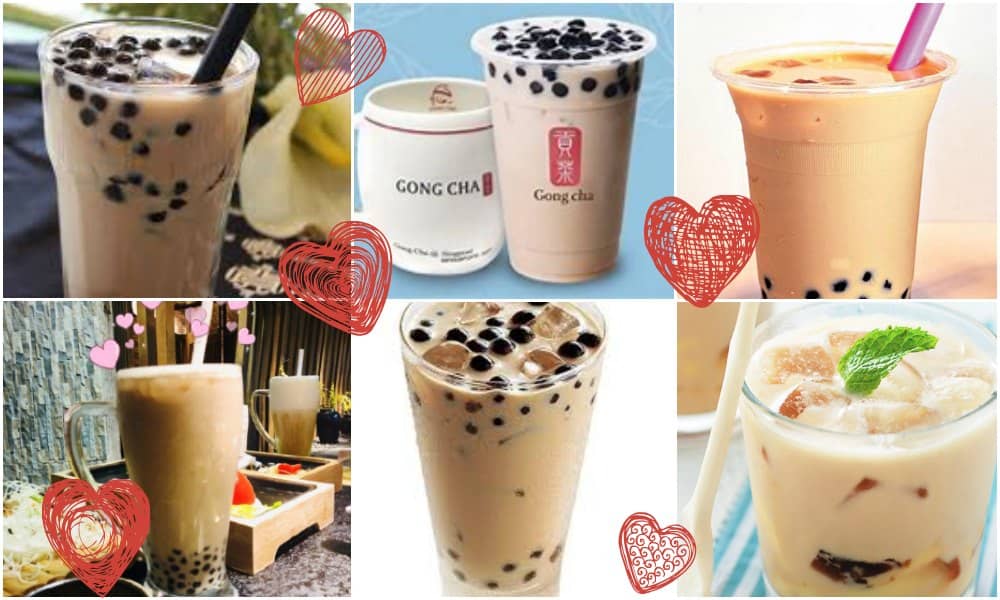
WHAT’S ON WEIBO ARCHIVE | PREMIUM CONTENT ARTICLE
With an ancient historical tradition of drinking tea, Chinese consumers are now turning to a different cup of tea; the iced and creamy bubble tea is a national favorite that’s also crossing borders and becoming more popular outside of Taiwan and mainland China. What’s on Weibo provides an introduction to the bubble tea craze and a top 10 of milk tea shops in mainland China.
April 30 has recently been named National Bubble Tea Day by the US-based milk tea chain Kung Fu Tea, which aims to introduce bubble tea and its culture to consumers all around the world.
The launch of this brand-new ‘National Bubble Tea Day’ and the general growing presence of milk tea shops in various countries shows the attraction of bubble tea – both in and outside China.
More Milk Tea than Coffee
Pearl milk tea or bubble tea, also known as ‘boba’ (bōbà nǎichá 波霸奶茶/ zhēnzhū nǎichá 珍珠奶茶), was first invented in Taiwan in 1988 – and has since become an important part of Taiwanese food culture. Over the past decade, the bubble tea craze has also blown over to mainland China.
For those unfamiliar with the drink; most pearl milk tea products contain an iced tea base and milk, with chewy tapioca pearls and sugar. Although this is a standard recipe, China’s many bubble milk tea shops and chains now have a growing selection of fruit flavored bubble tea or chocolate flavored bubble tea beside their original flavored bubble tea.
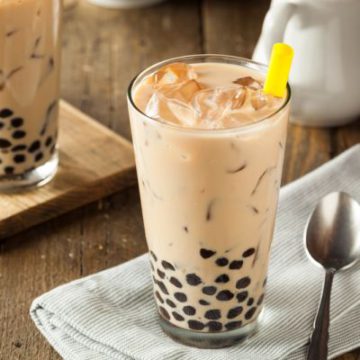
Since milk tea came to the mainland market in 1996, it has beaten coffee as a drink in terms of popularity. According to China marketing platform lbzuo.com (鹿豹座), Chinese now consume five times more milk tea than coffee. After the arrival of pearl milk tea to mainland China, coffee has taken a backseat, meaning that milk tea, in 15 years, beat what coffee in China did in 130 years. Bubble tea consumption continues to rise at a high rate each year.
Early on, pearl milk tea products were primarily targeted at young, female students between the ages of 15 and 25. Over recent years, however, the demographics have expanded as more men and working professionals are joining the craze.
The alternative to Starbucks
What makes pearl milk tea such a tantalizing drink to so many? Some say it is the combinations of having a drink and chewy snack in one, others claim the flavors are unrivaled, especially when compared to coffee; while western countries are immersed in the coffee lifestyle, China is more invested in milk tea.
This also has to do with China’s ancient tea culture. Although coffee has gradually become more popular in mainland China since the arrival of large chains such as Starbucks, some experts, such as tea entrepreneur Jiang Jiadao, say it is not about the coffee itself, but about new realities of modern life, where people want to pick up a quick drink or sit down somewhere with a friend in between meetings.

Long lines in front of a milk tea shop.
“It’s not because they love the coffee,” Jiang told SCMP: “The popularity of Starbucks doesn’t have anything to do with changing tastes for coffee instead of tea, or more love of Western culture. I think we love the lifestyle it stands for. If we can offer a similar lifestyle and experience over tea, this would work.”
And it seems to be working. People do not just love the drink’s taste and texture, bubble tea has also become more popular in China – especially amongst the younger generations – because they love the style and image of China’s new trendy tea house brands.
As reported by Caixin Global, Chinese bubble tea makers recently have been further building on their cool bubble tea image by merging with bookstores, popular clothing brands, or restaurant chains.
Mango Cheese Milk Tea
To attract more customers in a growingly competitive industry, milk tea brands now also add popular new flavors, snacks, and sweets to their menu. Recently, the so-called ‘dirty [chocolate] bread’ or ‘zang zang bao’ went viral as it was placed on the menu of various milk tea shops, conquering the hearts of Beijing’s milk tea lovers.
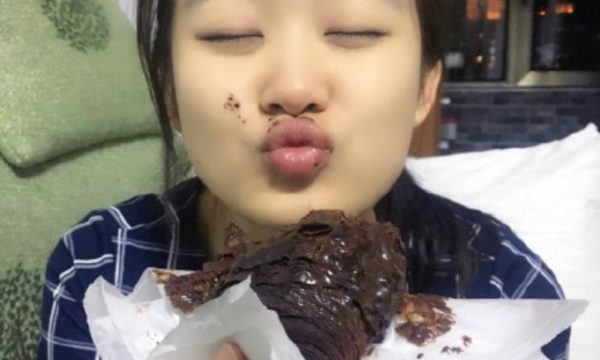
The ‘dirty bread’ is a popular snack sold by milk tea shops.
Some milk tea stores are also staying ahead of their competition by releasing products that grab people’s attention. The chain Happy Tea, for example, released their ‘Mango Cheese Tea’ after they found that many Chinese social media users search for both ‘mangos’ and ‘cheese’.
On Chinese social media, the bubble tea trend is clear from the many photos posted of the drink every single minute. “After a long day of work, all I need is my bubble tea,” are among the things written along with colorful and appealing pearl milk tea pics.
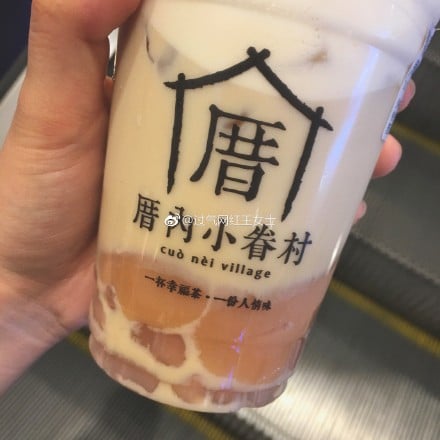
Drinking Bubble Tea is something to show to social media followers; a trendy drink, a lifestyle.
Some netizens express the sheer joy pearl milk tea can bring to people, with various celebrity idols now also endorsing China’s major milk tea shops, such as Yi Dian Dian (1點點).
Netizen @CLSD writes: “Tonight on my way home from work I made a detour at Yi Dian Dian. As I waited in line a while, I could see everyone’s smiles as they walked out with their milk tea. People who enjoy milk tea are so lovely. It’s indescribable. My favorite singer is also a milk tea enthusiast…”
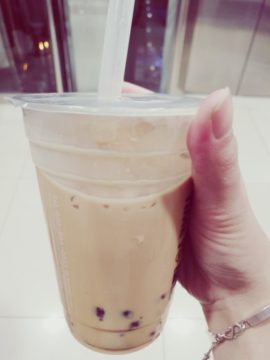
Others express their new-found love for the drink, writing: “I’m done for. I just started liking milk tea…”
Recently, long queues outside of milk tea shops have become a daily occurrence in major cities throughout China.* The craze for milk tea has been aided by strategic placement of stores nearby schools and office buildings. More often you can see milk tea brought into restaurants, schools, and offices. In contrast to coffee, milk tea is consumed virtually any time of the day.
The Most Popular Milk Tea Shops in China
Here is a top 10 of the most popular milk tea brands in China, of which many already have or will expand outside of Taiwan or mainland China. This list is compiled based on various sources, including Chinese online marketing magazines and Chinese food bloggers (e.g. 91yinpin.com, mroyal.cn, sina.com, sohu.com):
● #1 Yi Dian Dian (1點點 or 一点点奶茶)

Yi Dian Dian started in Taipei in 2010. The chain specializes in Taiwanese style milk tea, fruit tea, as well as desserts. Currently, Yi Dian Dian has over 600 stores in China and the Philippines. The company is expanding operations into countries such as England, Thailand, and Japan. Their main clientele is young students and professionals.
● #2 HEYTEA(喜茶)
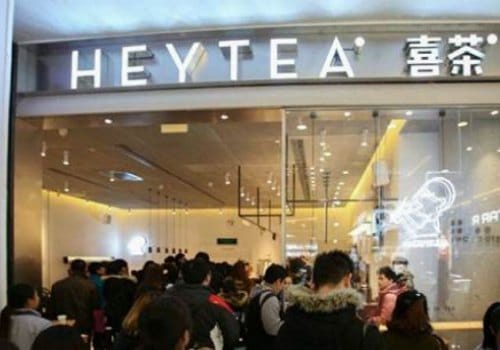
HEYTEA, formerly called Royal Tea (皇茶), was founded in 2012 by the Guangdong-born Yunchen Nie (聂云宸), who aspired to launch a Starbucks-style brand in the tea market. It has worked; the company now has 80 outlets in 13 cities. HEYTEA is the innovator behind “cheese tea” (奶盖茶, sweet creamy tea). Since this creation, they have concentrated on finding and incorporating high quality tea into their line of products. In 2016, they received a 100 million yuan outside investment.
● #3 Coco (coco都可奶茶)

Coco first opened in Taipei in 1997. Over the last 20 years, they have opened over 2000 stores worldwide with locations in the US, UK, Thailand, and Korea among others. Coco offers customers a variety of beverages that meet a wide range of taste preferences. They also perform regular health and safety checks as well as fresh ingredients to put consumer worries at ease.
● #4 Gong Cha(薡御贡茶)
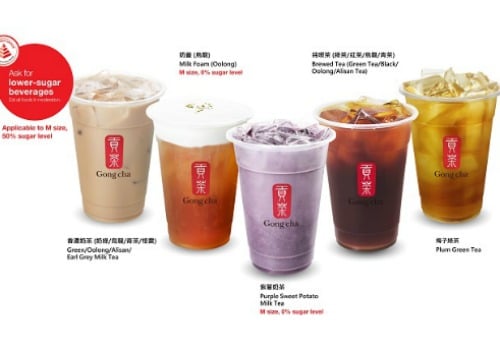
The milk tea shop with the most international exposure, Gong Cha started in Taiwan. Since 2006, this premium milk tea shop has become one of the largest in the world with more than 1,500 locations from Hong Kong to South Korea, New Zealand, Australia, USA, Singapore, and other countries.
● #5 Yunyang Royal (云仰皇茶)
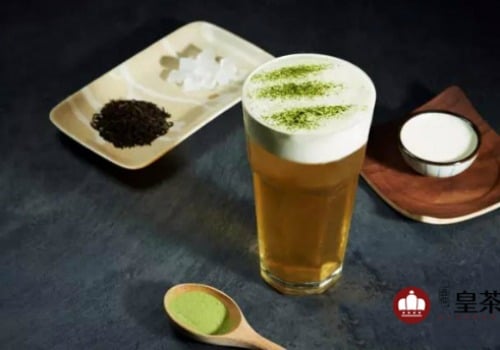
This brand has also been dubbed the “Hermes of the milk tea industry” because of its exquisite quality and higher price. It is a relatively new player in the milk tea market, only founded in 2016 in Dongguan, and has introduced a range of interesting flavors, including cheese rose Oolong, cheese cream cocoa, or milk salt mountain green tea.
● #6 China Fruit Time(鲜果时间)
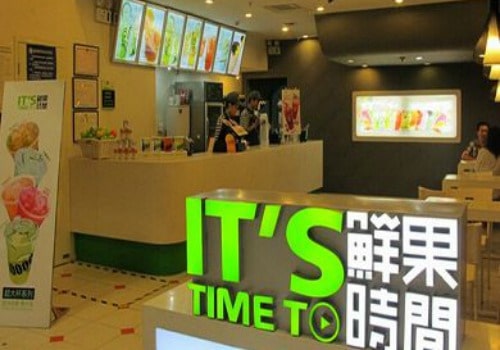
This shop was founded in Beijing in 2007, mainly focused on the take-out beverage market. It was an immediate success, with the franchise chain opening 40 new stores within a year after its founding. The brand mainly focuses on being “fresh, stylish, and healthy” and now has shops all over mainland China.
● #7 Utepia(乌茶邦)
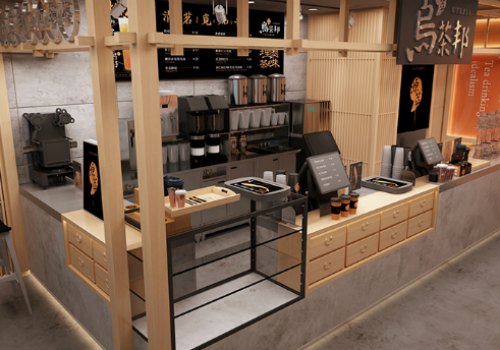
Utepia, Wu Cha Bang in Chinese, is a stylish milk tea franchise that is very new and based on the idea of being the “celebrity milk tea” – a very strong brand identity that is all about targeting young generations with a love for classy, traditional products. Although the company is new, some media predict 2018 will be the breakthrough year for this brand.
● #8 Happy Lemon(快乐柠檬)
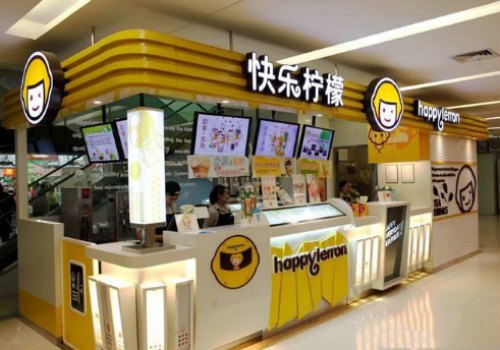
Happy Lemon was founded in Shanghai in 2006, although its owner (Albert Wu) has been active in the tea business since the early 1990s in Taipei. The main company behind this brand, Yummy Town Holdings Corporation, also owns RBT Tea Cafe (仙踪林) and other brands, which have stores in many countries including mainland South Korea, Japan, Britain, the United States, Australia and Canada.
● #9 Dakasi(大卡司)
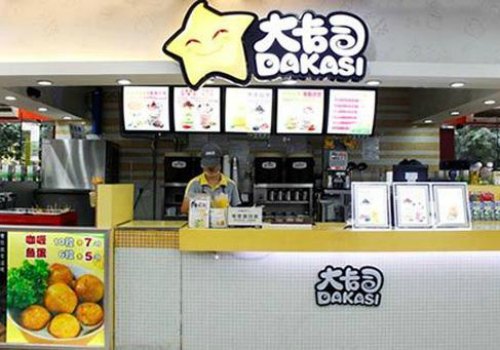
Dakasi is another milk tea shop with Taiwanese roots since 1990, which arrived in mainland China in 1999, where it set up its headquarters in Guangdong. It is a somewhat simple and classic milk tea brand that is especially loved by younger generations.
● #10 Attakai Kokoro Tea Shop(恋暖の初茶)
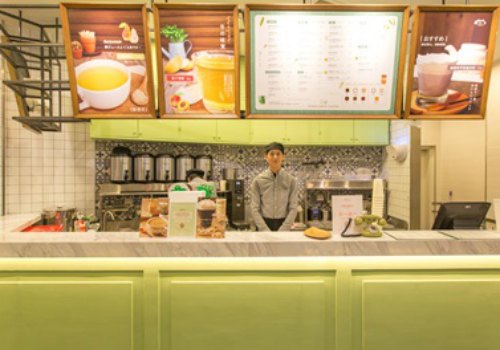
Although it has a Japanese name, this franchise tea shop is actually Chinese and just focuses on the fashionable Japanese style and quality ingredients, which the brand claims all come from Japan, Taiwan, and the US. It distinguishes itself from other brands by offering high-quality products at a relatively low price.
By Ryan Gandolfo and Manya Koetse
Follow @whatsonweibo
Spotted a mistake or want to add something? Please let us know in comments below or email us.
©2018 Whatsonweibo. All rights reserved. Do not reproduce our content without permission – you can contact us at info@whatsonweibo.com.
Ryan Gandolfo is an Economics graduate from Miami who has worked and lived in Shanghai, Baoding, and Guangzhou. He is interested in China's growing role in the global economy and closely follows the development of major Chinese technology firms.

China Books & Literature
Why Chinese Publishers Are Boycotting the 618 Shopping Festival
Bookworms love to get a good deal on books, but when the deals are too good, it can actually harm the publishing industry.
Published
2 months agoon
June 8, 2024By
Ruixin Zhang
JD.com’s 618 shopping festival is driving down book prices to such an extent that it has prompted a boycott by Chinese publishers, who are concerned about the financial sustainability of their industry.
When June begins, promotional campaigns for China’s 618 Online Shopping Festival suddenly appear everywhere—it’s hard to ignore.
The 618 Festival is a product of China’s booming e-commerce culture. Taking place annually on June 18th, it is China’s largest mid-year shopping carnival. While Alibaba’s “Singles’ Day” shopping festival has been taking place on November 11th since 2009, the 618 Festival was launched by another Chinese e-commerce giant, JD.com (京东), to celebrate the company’s anniversary, boost its sales, and increase its brand value.
By now, other e-commerce platforms such as Taobao and Pinduoduo have joined the 618 Festival, and it has turned into another major nationwide shopping spree event.
For many book lovers in China, 618 has become the perfect opportunity to stock up on books. In previous years, e-commerce platforms like JD.com and Dangdang (当当) would roll out tempting offers during the festival, such as “300 RMB ($41) off for every 500 RMB ($69) spent” or “50 RMB ($7) off for every 100 RMB ($13.8) spent.”
Starting in May, about a month before 618, the largest bookworm community group on the Douban platform, nicknamed “Buying Like Landsliding, Reading Like Silk Spinning” (买书如山倒,看书如抽丝), would start buzzing with activity, discussing book sales, comparing shopping lists, or sharing views about different issues.

Social media users share lists of which books to buy during the 618 shopping festivities.
This year, however, the mood within the group was different. Many members posted that before the 618 season began, books from various publishers were suddenly taken down from e-commerce platforms, disappearing from their online shopping carts. This unusual occurrence sparked discussions among book lovers, with speculations arising about a potential conflict between Chinese publishers and e-commerce platforms.
A joint statement posted in May provided clarity. According to Chinese media outlet The Paper (@澎湃新闻), eight publishers in Beijing and the Shanghai Publishing and Distribution Association, which represent 46 publishing units in Shanghai, issued a statement indicating they refuse to participate in this year’s 618 promotional campaign as proposed by JD.com.
The collective industry boycott has a clear motivation: during JD’s 618 promotional campaign, which offers all books at steep discounts (e.g., 60-70% off) for eight days, publishers lose money on each book sold. Meanwhile, JD.com continues to profit by forcing publishers to sell books at significantly reduced prices (e.g., 80% off). For many publishers, it is simply not sustainable to sell books at 20% of the original price.
One person who has openly spoken out against JD.com’s practices is Shen Haobo (沈浩波), founder and CEO of Chinese book publisher Motie Group (磨铁集团). Shen shared a post on WeChat Moments on May 31st, stating that Motie has completely stopped shipping to JD.com as it opposes the company’s low-price promotions. Shen said it felt like JD.com is “repeatedly rubbing our faces into the ground.”
Nevertheless, many netizens expressed confusion over the situation. Under the hashtag topic “Multiple Publishers Are Boycotting the 618 Book Promotions” (#多家出版社抵制618图书大促#), people complained about the relatively high cost of physical books.
With a single legitimate copy often costing 50-60 RMB ($7-$8.3), and children’s books often costing much more, many Chinese readers can only afford to buy books during big sales. They question the justification for these rising prices, as books used to be much more affordable.
Book blogger TaoLangGe (@陶朗歌) argues that for ordinary readers in China, the removal of discounted books is not good news. As consumers, most people are not concerned with the “life and death of the publishing industry” and naturally prefer cheaper books.
However, industry insiders argue that a “price war” on books may not truly benefit buyers in the end, as it is actually driving up the prices as a forced response to the frequent discount promotions by e-commerce platforms.
China News (@中国新闻网) interviewed publisher San Shi (三石), who noted that people’s expectations of book prices can be easily influenced by promotional activities, leading to a subconscious belief that purchasing books at such low prices is normal. Publishers, therefore, feel compelled to reduce costs and adopt price competition to attract buyers. However, the space for cost reduction in paper and printing is limited.
Eventually, this pressure could affect the quality and layout of books, including their binding, design, and editing. In the long run, if a vicious cycle develops, it would be detrimental to the production and publication of high-quality books, ultimately disappointing book lovers who will struggle to find the books they want, in the format they prefer.
This debate temporarily resolved with JD.com’s compromise. According to The Paper, JD.com has started to abandon its previous strategy of offering extreme discounts across all book categories. Publishers now have a certain degree of autonomy, able to decide the types of books and discount rates for platform promotions.
While most previously delisted books have returned for sale, JD.com’s silence on their official social media channels leaves people worried about the future of China’s publishing industry in an era dominated by e-commerce platforms, especially at a time when online shops and livestreamers keep competing over who has the best book deals, hyping up promotional campaigns like ‘9.9 RMB ($1.4) per book with free shipping’ to ‘1 RMB ($0.15) books.’
This year’s developments surrounding the publishing industry and 618 has led to some discussions that have created more awareness among Chinese consumers about the true price of books. “I was planning to bulk buy books this year,” one commenter wrote: “But then I looked at my bookshelf and saw that some of last year’s books haven’t even been unwrapped yet.”
Another commenter wrote: “Although I’m just an ordinary reader, I still feel very sad about this situation. It’s reasonable to say that lower prices are good for readers, but what I see is an unfavorable outlook for publishers and the book market. If this continues, no one will want to work in this industry, and for readers who do not like e-books and only prefer physical books, this is definitely not a good thing at all!”
By Ruixin Zhang, edited with further input by Manya Koetse
Independently reporting China trends for over a decade. Like what we do? Support us and get the story behind the hashtag by subscribing:
Spotted a mistake or want to add something? Please let us know in comments below or email us. First-time commenters, please be patient – we will have to manually approve your comment before it appears.
©2024 Whatsonweibo. All rights reserved. Do not reproduce our content without permission – you can contact us at info@whatsonweibo.com.
China Brands, Marketing & Consumers
Chinese Sun Protection Fashion: Move over Facekini, Here’s the Peek-a-Boo Polo
From facekini to no-face hoodie: China’s anti-tan fashion continues to evolve.
Published
2 months agoon
June 6, 2024
It has been ten years since the Chinese “facekini”—a head garment worn by Chinese ‘aunties’ at the beach or swimming pool to prevent sunburn—went international.
Although the facekini’s debut in French fashion magazines did not lead to an international craze, it did turn the term “facekini” (脸基尼), coined in 2012, into an internationally recognized word.
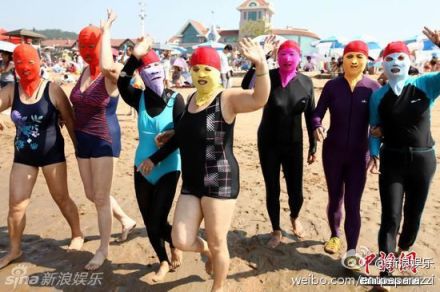
The facekini went viral in 2014.
In recent years, China has seen a rise in anti-tan, sun-protection garments. More than just preventing sunburn, these garments aim to prevent any tanning at all, helping Chinese women—and some men—maintain as pale a complexion as possible, as fair skin is deemed aesthetically ideal.
As temperatures are soaring across China, online fashion stores on Taobao and other platforms are offering all kinds of fashion solutions to prevent the skin, mainly the face, from being exposed to the sun.

One of these solutions is the reversed no-face sun protection hoodie, or the ‘peek-a-boo polo,’ a dress shirt with a reverse hoodie featuring eye holes and a zipper for the mouth area.

This sun-protective garment is available in various sizes and models, with some inspired by or made by the Japanese NOTHOMME brand. These garments can be worn in two ways—hoodie front or hoodie back. Prices range from 100 to 280 yuan ($13-$38) per shirt/jacket.

The no-face hoodie sun protection shirt is sold in various colors and variations on Chinese e-commerce sites.
Some shops on Taobao joke about the extreme sun-protective fashion, writing: “During the day, you don’t know which one is your wife. At night they’ll return to normal and you’ll see it’s your wife.”

On Xiaohongshu, fashion commenters note how Chinese sun protective clothing has become more extreme over the past few years, with “sunburn protection warriors” (防晒战士) thinking of all kinds of solutions to avoid a tan.

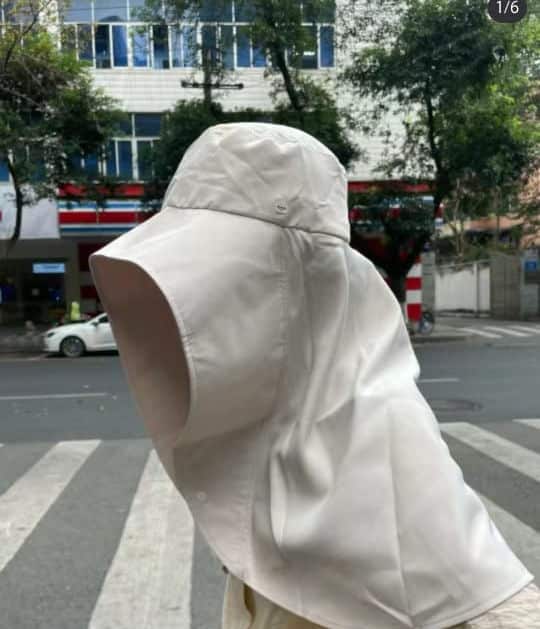


Although there are many jokes surrounding China’s “sun protection warriors,” some people believe they are taking it too far, even comparing them to Muslim women dressed in burqas.
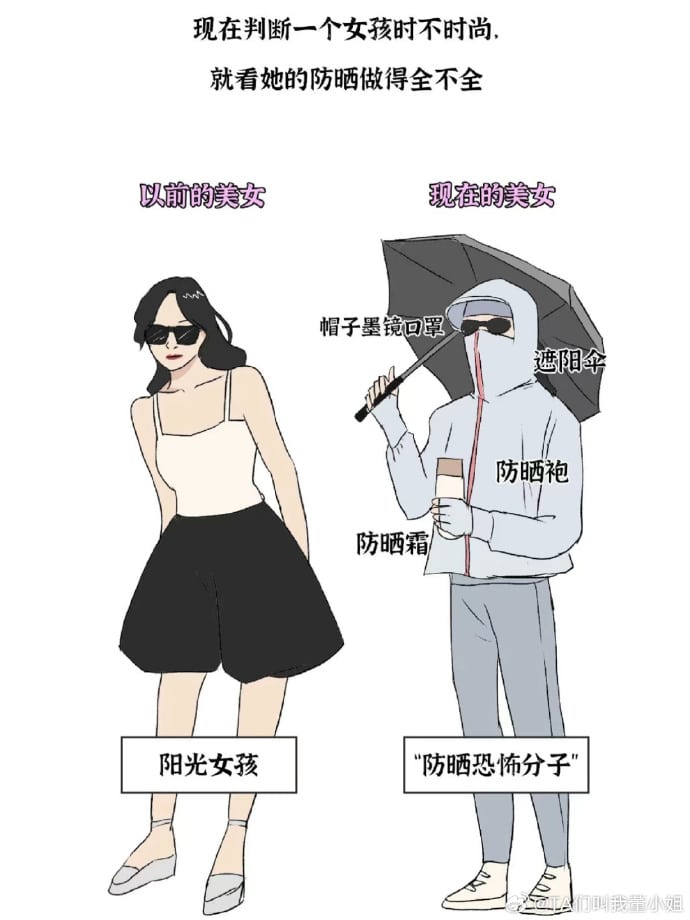
Image shared on Weibo by @TA们叫我董小姐, comparing pretty girls before (left) and nowadays (right), also labeled “sunscreen terrorists.”
Some Xiaohongshu influencers argue that instead of wrapping themselves up like mummies, people should pay more attention to the UV index, suggesting that applying sunscreen and using a parasol or hat usually offers enough protection.
By Manya Koetse, with contributions by Miranda Barnes
Spotted a mistake or want to add something? Please let us know in comments below or email us. First-time commenters, please be patient – we will have to manually approve your comment before it appears.
©2024 Whatsonweibo. All rights reserved. Do not reproduce our content without permission – you can contact us at info@whatsonweibo.com.
Subscribe

Weibo Watch: The Future is Here

“Bye Bye Biden”: Biden’s Many Nicknames in Chinese

Enjoying the ‘Sea’ in Beijing’s Ditan Park

A Triumph for “Comrade Trump”: Chinese Social Media Reactions to Trump Rally Shooting

Weibo Watch: Get Up, Stand Up

The Tragic Story of “Fat Cat”: How a Chinese Gamer’s Suicide Went Viral

“Old Bull Eating Young Grass”: 86-Year-Old Chinese Painter Fan Zeng Marries 36-Year-Old Xu Meng

A Brew of Controversy: Lu Xun and LELECHA’s ‘Smoky’ Oolong Tea

Singing Competition or Patriotic Fight? Hunan TV’s ‘Singer 2024’ Stirs Nationalistic Sentiments

Zara Dress Goes Viral in China for Resemblance to Haidilao Apron

Weibo Watch: The Battle for the Bottom Bed

About the “AI Chatbot Based on Xi Jinping” Story

China’s Intensified Social Media Propaganda: “Taiwan Must Return to Motherland”

Weibo Watch: Telling China’s Stories Wrong

Saying Goodbye to “Uncle Wang”: Wang Wenbin Becomes Chinese Ambassador to Cambodia
Get in touch
Would you like to become a contributor, or do you have any tips or suggestions? Get in touch here!
Popular Reads
-

 China Insight3 months ago
China Insight3 months agoThe Tragic Story of “Fat Cat”: How a Chinese Gamer’s Suicide Went Viral
-

 China Music4 months ago
China Music4 months agoThe Chinese Viral TikTok Song Explained (No, It’s Not About Samsung)
-

 China Digital10 months ago
China Digital10 months agoToo Sexy for Weibo? Online Discussions on the Concept of ‘Cābiān’
-

 China Arts & Entertainment12 months ago
China Arts & Entertainment12 months agoBehind 8 Billion Streams: Who is Dao Lang Cursing in the Chinese Hit Song ‘Luocha Kingdom’?






Steven Wrege
June 20, 2018 at 7:06 am
I have have tried most of the shops you have listed but I found that Happy Lemon was the best of them all. RBT is great too if you want a little more food to go with your tea.
I’m really excited that the are expanding in the United States since I now live there.
LinYun
November 7, 2018 at 6:31 am
Hello! Reading milk tea shops in China makes me feel nostalgic, reminding me of the days when I lived there and frequently went to Yi Dian Dian. I was interested to read how milk tea shops are rising in popularity among young consumers. I would be interested to further research how these brands will adjust their marketing strategy to appeal to the younger public. I was surprised to learn that people in China drink more milk tea than coffee. On the other hand, tea is a drink closer to the Chinese culture than coffee which makes marketing to consumers easier. While there are many affordable milk tea shops in China, the ones in the US are much more expensive. The tea shops here position themselves as an exotic product. In the following years, I wonder if their marketing strategy in the US will change to attract a larger consumer base.
Olivier
November 23, 2020 at 10:58 am
super interesting article, just share on twitter.
tea franchise has become a massive trends for consumers and small investors in China.
Small bets, good profit, it was the investment of the year 2019